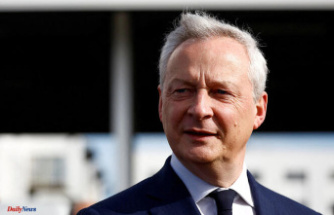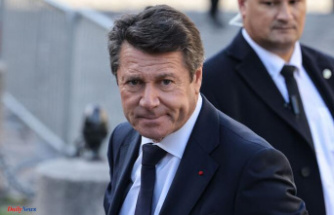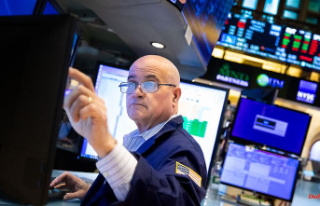The Turkish opposition leader Kilicdaroglu publicly blames the AKP government for a "methamphetamine epidemic" and gives the interior minister a smug name. Kilicdaroglu gets the bill promptly - based on a brand new law.
The leader of Turkey's main opposition party has been charged with allegedly violating a controversial "disinformation" law. According to information from his social democratic party CHP, Kemal Kilicdaroglu has been accused of "publicly disseminating misleading information". The opposition leader is the first person in Turkey to be prosecuted under the law passed last month. Kilicdaroglu faces up to three years in prison.
CHP leader Kilicdaroglu had blamed Erdogan's conservative AKP government on Twitter for a "methamphetamine epidemic" and accused it of using money from drug sales to pay down national debt.
Similar allegations have been leveled against the government in Turkey, especially since the fugitive mafia boss Sedat Peker accused current and former ministers of serious crimes in several videos last year. In one of them, for example, he accused the current Minister of the Interior, Süleyman Soylu, of being connected to organized crime. In another, he claimed that sons of former ministers were involved in international drug smuggling. There was no hard evidence at the time.
In his speech via Twitter, Kilicdaroglu directly attacked this Turkish interior minister and used a smug name: "Breaking Bad Süleyman turns a blind eye to the poisoning of the country's children." He described Istanbul as a place that had degenerated into an international drug center.
Interior Minister Süleyman Soylu said in response to Kilicdaroglu's video that it was not for a citizen "and certainly not for a party leader to slander the state, the police, the gendarmerie and the army". He also sat down by saying, "Are we guilty of catching her?" to the defense.
A statistic can help him there. According to the Turkish Ministry of the Interior, 264,202 people were arrested for drug offenses in 2021, 206,421 in 2020 and just over 200,000 in 2019. In 2019, 1,042 kilos of methamphetamine were seized by the Turkish authorities, in 2021 it was already 5,528 kilograms. The Interior Ministry argues that the higher numbers resulted from increased controls. In 2021, Turkish authorities intercepted 22 tons of heroin and 2.8 tons of cocaine, Soylu said in February 2022. These are the highest numbers in the history of the Turkish Republic.
Kilicdaroglu apparently does not see Soylu relieved despite these statistics. What he took up in his Twitter video is also a topic that has accompanied Turkey for decades. The connection between Turkish politics and organized crime has been discussed for a long time.
Researcher Ryan Gingeras, for example, covered the topic in his study "Heroin, Organized Crime, and the Making of Modern Turkey". He examined the influence of Turkish drug cartels and gangsters and her Interaction with politics and state apparatuses such as secret services since the Ottoman Empire.His focus is on the once flourishing and partly legal opium trade and on Turkey as a hub for heroin.
After CHP leader Kilicdaroglu took up the issue of modern party drugs and was charged, party lawyer Celal Celik told the pro-opposition news agency Anka that the authorities had "warned" that the new "disinformation" law would be used against politicians, " to limit their freedom of speech. That's what happened."
Erdogan, who has long used a heavy hand against his opponents, wants to be confirmed in office next year. It is likely to be the most difficult election for him since he began his tenure almost two decades ago. The polls for his ruling party are at an all-time low because of runaway inflation and a currency crisis. CHP leader Kilicdaroglu is traded as a possible challenger, and the names of his party colleagues Ekrem İmamoğlu Mansur Yavas, the mayors of Istanbul and Ankara, are mentioned particularly often.












